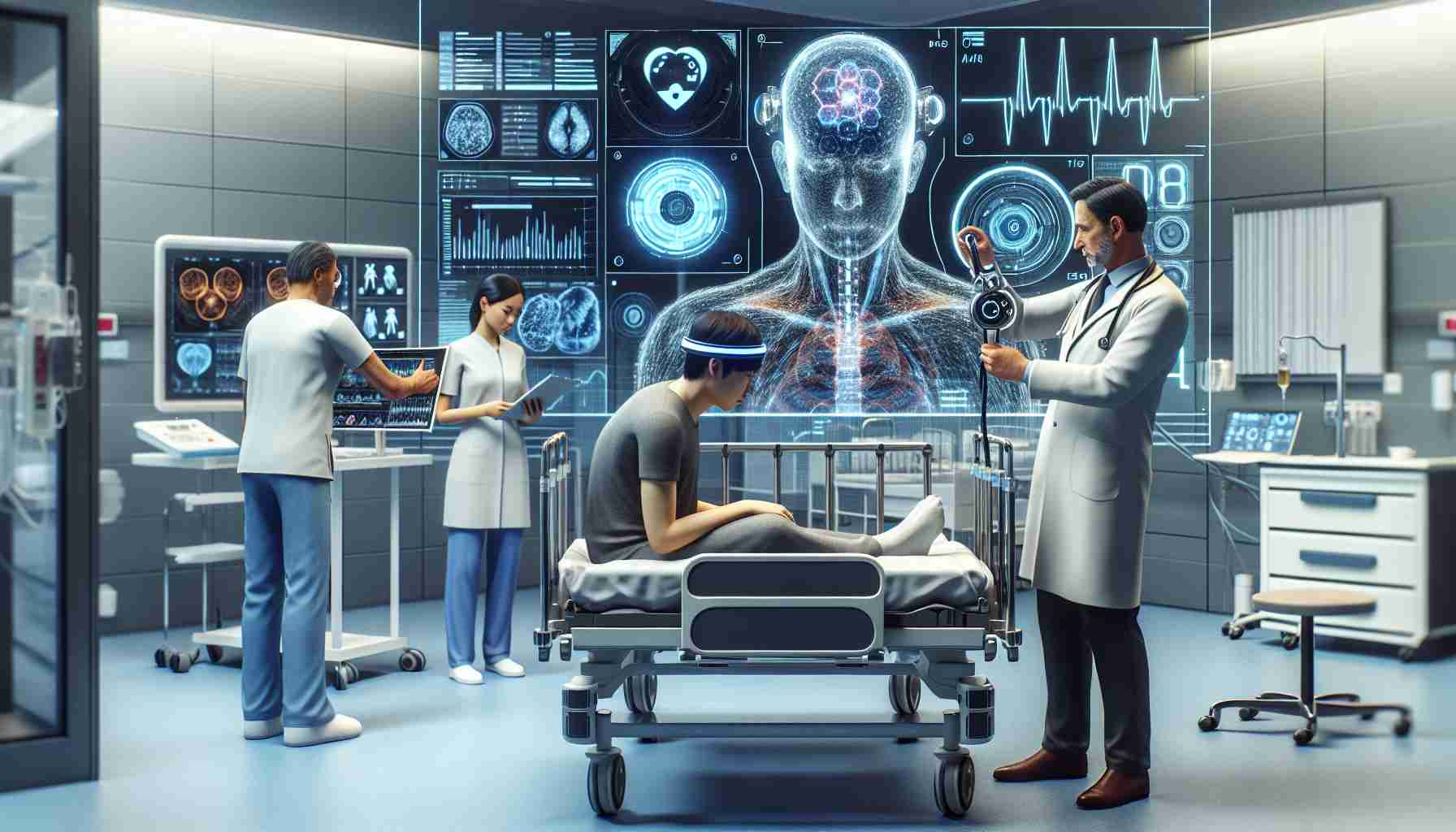Artificial Intelligence (AI) Enhances Parkinson’s Disease Management, conveying that it might not transform the global paradigm dramatically, but it will surely lead to more effective and personalized medical care. According to Dr. Marisa Almarcha, a neurologist specializing in movement disorders at the Ruber International Hospital in Madrid, AI algorithms have the potential to make treatments increasingly precise for each individual patient. The doctor shared her insights during the V Conference on Research and Innovation in Parkinson’s Disease hosted by the Parkinson’s Galicia-A Coruña Association at the Barrié Foundation’s headquarters.
Dr. Almarcha, along with Dr. José Javier Hernández and physicist Jesús Silva, discussed the contributions of AI to Parkinson’s disease at a roundtable. These experts unveiled their respective AI-related projects targeting Parkinson’s management, demonstrating the collective drive to harness technology within this field.
The movement disorders team at Ruber International Hospital, where Dr. Almarcha is a member, is partaking in AI-Prognosis, a notable Horizon Europe research and innovation effort aimed at advancing Parkinson’s disease diagnosis and care. This forward-thinking project was initiated by Greek engineers and now involves a broad consortium of 17 European partners. Within this research, three multicentric clinical studies are being launched, emphasizing Ruber International’s pivotal role.
Explicit in its mission, AI-Prognosis strives to develop an early diagnostic tool, measure disease progression, and gauge treatment responses for Parkinson’s disease. The project is distinguished by its utilization of everyday digital biomarkers and predictive models.
Under AI-Prognosis, three clinical investigations will unfold. In the first, a mAI-Health application will allow individuals to track their Parkinson’s risk profile. The second study features mAI-Care, enabling patients to monitor symptoms, disease progression, and medication effectiveness. Lastly, mAI-Insights serves health professionals with a web application designed for Parkinson’s detection, patient monitoring, and medication management optimization.
Dr. Almarcha highlights that swift and accurate diagnostics, along with anticipating disease progression, aim to secure more precise treatments. She acknowledges that while curative treatments for Parkinson’s are yet to be discovered, symptomatic therapies currently available significantly improve life quality, enabling patients to lead practically normal lives in various stages of the disease.
Furthermore, the AI-Prognosis project integrates a co-creation panel with Parkinson’s patients from diverse countries to gather input on the potential utility and benefits of such applications. This empowers patients to have an active role in AI development, reinforcing that AI is not just a powerful adjunct for healthcare providers but also an invaluable asset for patients navigating Parkinson’s disease.
Additional Facts Relevant to Revolutionizing Parkinson’s Patient Care with AI Innovation:
– Parkinson’s Disease Prevalence: Parkinson’s disease affects over 10 million people worldwide, and its prevalence is rising as the population ages, underscoring the urgency of advancing patient care.
– Biological Markers and Imaging in Parkinson’s: AI can analyze data from biological markers and neuroimaging, potentially improving the early detection and monitoring of the disease.
– The Role of Wearable Technology: Wearables, such as smartwatches and sensors, can collect continuous data on motor symptoms, such as tremors and gait abnormalities, which AI can process for real-time disease management.
– Personalized Medicine: AI facilitates personalized medicine in Parkinson’s by analyzing large datasets, which can lead to better understanding and prediction of which treatments will work for each individual based on their unique disease profile.
Key Questions and Answers:
– How does AI help in the early diagnosis of Parkinson’s disease? AI can identify subtle patterns in clinical data and patient movements that the human eye might miss, leading to earlier and more accurate diagnoses.
– Can AI predict the course of Parkinson’s disease in patients? AI may contribute to predicting disease progression through analyzing historical data and identifying progression patterns, which can help customize treatment plans.
Key Challenges and Controversies:
– Data Privacy: The use of AI in healthcare raises concerns about the privacy and security of patients’ personal medical data.
– Bias in AI Algorithms: AI systems may inherit biases present in training data, potentially leading to unequal care or misdiagnosis for minority patient groups.
– Clinical Integration: Integrating AI into clinical practice faces challenges due to the need for interoperability with existing healthcare systems and infrastructure.
Advantages:
– Individualized Treatment: AI enables personalized treatment regimens that can adapt to patients’ changing conditions.
– Proactive Care: AI’s predictive capabilities allow for proactive interventions, potentially slowing the progression of Parkinson’s.
– Empowerment of Patients: AI applications like mAI-Health, mAI-Care, and mAI-Insights encourage patient engagement and self-management of the disease.
Disadvantages:
– Technology Reliance: Over-reliance on AI tools may lead healthcare practitioners to underutilize their judgment and experience.
– Implementation Costs: The cost of developing, implementing, and maintaining AI systems may be high, impacting their accessibility.
– Training and Adaptation: There may be a steep learning curve for healthcare providers and patients to effectively utilize AI tools.
Suggested Related Links:
– For more information on Parkinson’s disease: Parkinson’s Foundation
– To explore the role of AI in healthcare further: Office of the National Coordinator for Health Information Technology
– To understand the intersection of technology and neurological disorders: The Michael J. Fox Foundation for Parkinson’s Research
Please note that these links are to main domains offering information on Parkinson’s disease, AI in healthcare, and related research, but the specificity of the AI-Prognosis project may not be detailed at these URLs.

